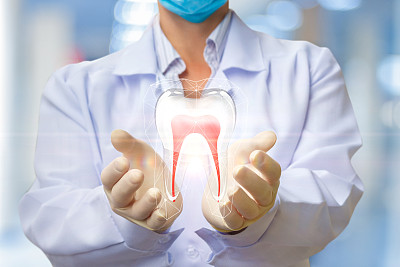The Importance of Extracting a Tooth for Overall Dental Health and Wellbeing Explained
Summary: Tooth extraction is often regarded as a last resort in dental care, but this procedure can play a crucial role in promoting overall dental health and wellbeing. This article explores the importance of extracting a tooth in four main areas: alleviating pain and discomfort, preventing the spread of infection, facilitating orthodontic treatment, and improving dental aesthetics. Each section will delve into the benefits of tooth extraction, considerations to keep in mind, and the long-term implications for a patients overall oral health. Understanding these aspects will empower individuals to make informed decisions regarding their dental care and highlight the importance of working closely with dental professionals.
Alleviating Pain and Discomfort Effectively

Tooth extraction is often necessary to relieve persistent pain and discomfort caused by various dental issues. For instance, a tooth that has experienced severe decay or trauma may become infected, resulting in unbearable pain. In such cases, removing the affected tooth can provide immediate relief, allowing patients to return to their daily lives without the burden of constant discomfort.
Moreover, factors such as advanced gum disease can lead to pain and swelling, significantly impacting a persons quality of life. Removing teeth that are compromised by periodontal issues can contribute to overall oral health and prevent further complications that may arise from untreated disease.
In some instances, impacted wisdom teeth may cause considerable pain and discomfort as they attempt to emerge. Extraction of these teeth can alleviate pressure on adjacent teeth and reduce the risk of infection, thus enhancing the patients comfort and overall wellbeing.
Preventing the Spread of Infection Is Crucial
One significant reason for tooth extraction is to prevent the spread of infection. When bacteria invade the dental pulp, it can lead to abscesses and systemic infections that may have far-reaching consequences for health. Extracting the affected tooth prevents the infection from worsening and helps to maintain the integrity of the surrounding bone and soft tissue.
In addition, when dental infections are left untreated, they may require more extensive and costly treatments down the line. Early intervention through tooth extraction can spare patients from additional pain, prolonged treatment, and significant financial burden, emphasizing the importance of addressing dental issues promptly.
Furthermore, ensuring that infections are managed appropriately contributes to overall systemic health. Dental infections have been linked to heart disease, diabetes, and other serious health conditions. By removing infected teeth, patients can mitigate these potential risks, allowing for a healthier body overall.
Facilitating Orthodontic Treatment Efficiently
Tooth extraction is often a prerequisite for successful orthodontic treatment. Overcrowded teeth can make it challenging for braces to effectively align the dental arch. Removing one or more teeth can create the necessary space, allowing for more efficient movement of the remaining teeth into their ideal positions.
This strategic approach not only enhances the effectiveness of orthodontic treatments but also helps in achieving a balanced bite. A well-aligned bite can prevent future dental issues such as excessive wear, Temporomandibular Joint (TMJ) disorders, and other complications that can arise from misalignment.
Moreover, by addressing overcrowding early on, patients can avoid more complex interventions later in life. Understanding the role of tooth extraction in orthodontics facilitates informed discussions with dental professionals regarding the best treatment plan tailored to individual needs.
Improving Dental Aesthetics and Confidence
Tooth extraction can also significantly influence a patients dental aesthetics. Missing or damaged teeth can detract from an individuals smile, leading to self-esteem issues. In some cases, removing problem teeth is an integral step toward achieving a beautiful, confident smile through dental implants or prosthetics.
Additionally, addressing any underlying dental issues through extraction can pave the way for cosmetic dentistry procedures, further enhancing the overall appearance of the smile. This holistic approach to dental care not only addresses functionality but also prioritizes aesthetics, allowing patients to feel more confident in their appearance.
Ultimately, the psychological benefits of a confident smile should not be underestimated. Patients who take proactive steps to improve their oral health through procedures like tooth extraction often report enhanced self-esteem and social interactions, highlighting the broader implications for overall wellbeing.
Summary:
The article thoroughly discusses the multifaceted importance of tooth extraction for overall dental health and wellbeing. By exploring the alleviation of pain, prevention of infections, facilitation of orthodontic treatment, and improvements in aesthetic appeal, it emphasizes that tooth extraction can be a proactive measure in gaining better oral health.
In conclusion, understanding what tooth extraction involves can lead to informed decisions that align with personal health goals. Maintaining a strong partnership with dental professionals ensures effective planning and execution of appropriate dental care strategies.
This article is compiled by Vickong Dental and the content is for reference only.



